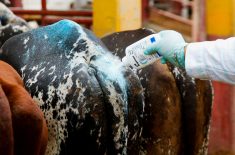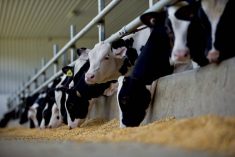A new provincial study finds that a dairy production and processing operation in Labrador would be a cash-losing proposition in the millions of dollars over the longer term.
The Newfoundland and Labrador government commissioned the study at the request of the Lake Melville Agricultural Association, to explore the feasibility of a dairy operation and processing plant to supply Labrador and, potentially, Nunavut.
The study, done by Central Consulting Services of Gander, found that creating and operating a dairy farm, plant and distribution facility as proposed in the Lake Melville area of eastern Labrador, “is not sustainable given the significant financial losses it would generate,” the province said in a release Tuesday.
Read Also

Mexico agriculture secretary says still no date for restarting cattle exports to U.S.
Mexican Agriculture Minister Julio Berdegue said on Wednesday that Mexico and the United States have not yet set a date to resume Mexican cattle exports amid an outbreak of the flesh-eating screwworm parasite.
Lake Melville stretches in westward from Labrador’s east coast and is home to settlements such as Happy Valley/Goose Bay. The Lake Melville group had proposed clearing enough land to grow forage, buying a herd of cattle, building modern barns and a milking parlour, and setting up a milk-production facility with a marketing network.
Phasing the proposed project in over six years would take a capital investment of about $6.2 million and working capital of $2.1 million, for a total project cost of $8.3 million, the province said.
“The report concludes that the proposed operation would generate losses of approximately $6 million after 13 years of operating,” said Kathy Dunderdale, the provincial minister responsible for agrifoods.
“Given the large negative return identified and the consultant’s conclusion that the project is not viable, it would be difficult to justify allocating financial resources,” she said in the release. Provincial ag development funding programs could do little to offset such losses, she said.
“At this time, it is our belief that there are many other projects where government funding would be more effectively spent to further develop the agricultural industry in Labrador.”
However, Dunderdale said, “the report provides us with important knowledge to continue building the farming sector in the region.”
The study also doesn’t rule out potential investors in the industry from coming forward with viable business proposals, she said. “If that happens, we would certainly consider assisting them through our funding programs.”
The province, she said, is still committed to continuing to build core farming and agrifoods capacity in central Labrador.











